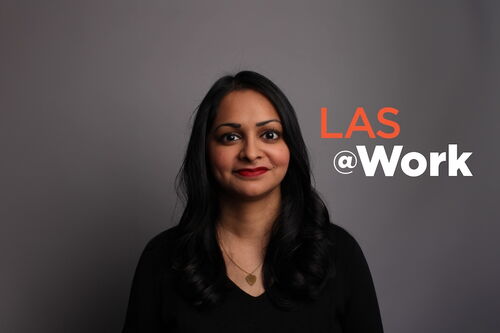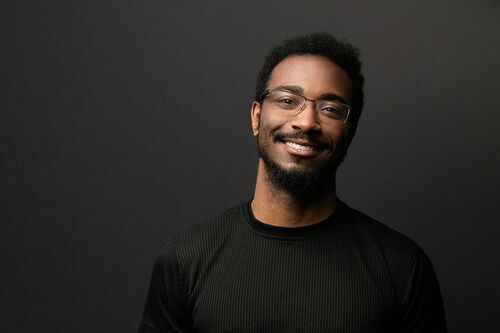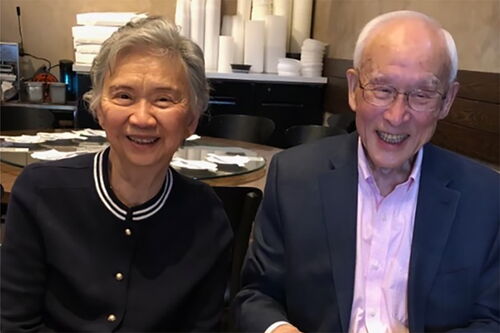Surgical precision
It begins with an incision in the armpit, creating a hole about 3 inches wide. This opening enables Julie Freischlag (BS, '76, biology) to remove the rib closest to the patient’s collarbone, bringing much-needed relief. In such cases, the rib usually has been compressing nerves, arteries, or veins, creating chronic pain in the shoulder, numbness in the fingers, or other symptoms.
Freischlag, a 1976 LAS alum in biology, is one of the few people in the country who can perform this difficult, highly specialized procedure—thoracic outlet surgery. She says she has always been attracted by the hand-eye coordination required in such delicate surgeries. But she stresses that the real attraction is the bond with patients. After all, she says, that’s why she chose vascular surgery in the first place.
“With other forms of surgery, such as removing an appendix, you don’t really need to see the patients again,” says Freischlag, a 2011 Alumni Achievement Award winner. “But vascular disease is a systemic disease, and patients come back to you over a long period of time. You see the patients throughout their entire life, and I like that.”
This unique combination of patient care and surgical finesse has taken Freischlag to the top of her field. She is the first female chief of surgery at Johns Hopkins Hospital in Baltimore, ranked as the number one hospital in the country by U.S. News & World Report.
Freischlag is originally from Decatur, Ill., but her father’s newspaper work took the family to Champaign-Urbana and then to Chicago. She says she originally planned to teach high school biology, but fears of a teacher’s glut sent her in the direction of medicine. After receiving her bachelor’s in biology from U of I, she went to Rush Medical College in Chicago and received her first taste of surgery early in her third year. She had found her passion.
“I enjoy using my hands,” she says. “I also like it that when you make a diagnosis, you can make a specific intervention. You can fix the problem.”
When Freischlag did her internship at UCLA, she was one of only three women among 29 interns in general surgery. But to be honest, she says, she was too busy to even think much about gender disparities. As an intern and resident, she put in over 100 hours per week; but as she points out, “You’ll do anything a lot if you have a passion for it.”
Once her training was over, her work settled down to 60 or 70 hours per week. Today, with all of her administrative and teaching duties, she does fewer surgeries than in the past—roughly two to four per week.
Freischlag has taught and done research throughout her career, taking faculty positions at UC-San Diego, UCLA, and the Medical College of Wisconsin, before returning to UCLA in 1998. As a professor and chief of vascular surgery at UCLA, for example, she discovered reasons why some plaque would “embolize,” or throw off pieces that can block arteries and cause a stroke.
She was named chief of surgery at Johns Hopkins Hospital in 2003 and oversees surgery at four other hospitals as well. She is also in charge of a $21 million national study, tracking over 800 patients who have undergone two types of treatment for abdominal aortic aneurysms, in which the abdominal aorta dilates to a dangerous diameter. The study will follow patients until 2015, but early results have shown that patients respond better to a less-intrusive treatment that does not require a major operation.
Freischlag has a long list of honors, including being named one of the 10 “most powerful moms in health care” by Working Mother magazine in 2010. As a mom, she ensures that she has time for her 16-year-old son and two grown stepsons—a task made much easier by her husband Phil Roethle, a businessman whose flexible schedule allows him to take on much of the home load.
Surgery has a reputation as the most macho of medical professions, but Freischlag says she has found that patients are fine with a woman surgeon. She says, however, that initially other surgeons were “a bit skeptical that a woman could work as hard or do as good of a job as a man. The way to resolve the doubts of others is to work hard, be pleasant, and never falter. Finding good colleagues along the way, male and female, doctors and non-doctors, is essential to one’s success. Maintaining one’s focus and composure is important too.”
It also helps if you love what you do. Talking about life as a surgeon, Freischlag told Illinois Alumni magazine, “You live it, you breathe it. It’s every ounce of your being. It’s absolutely fabulous. But it’s not for the faint of heart.”








